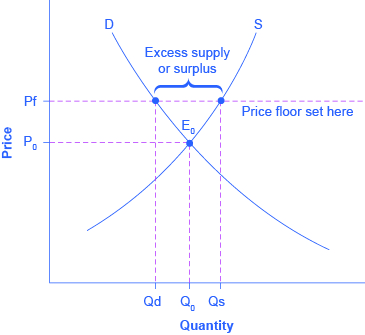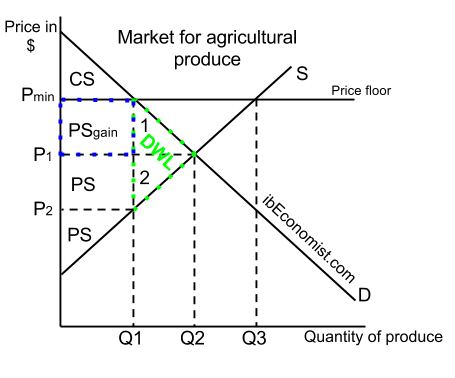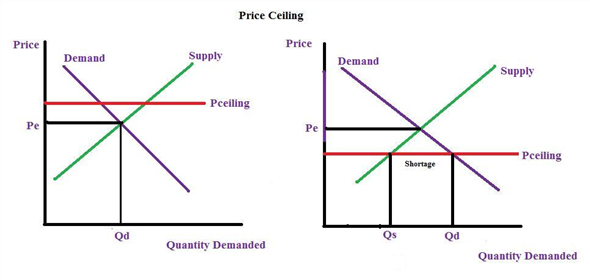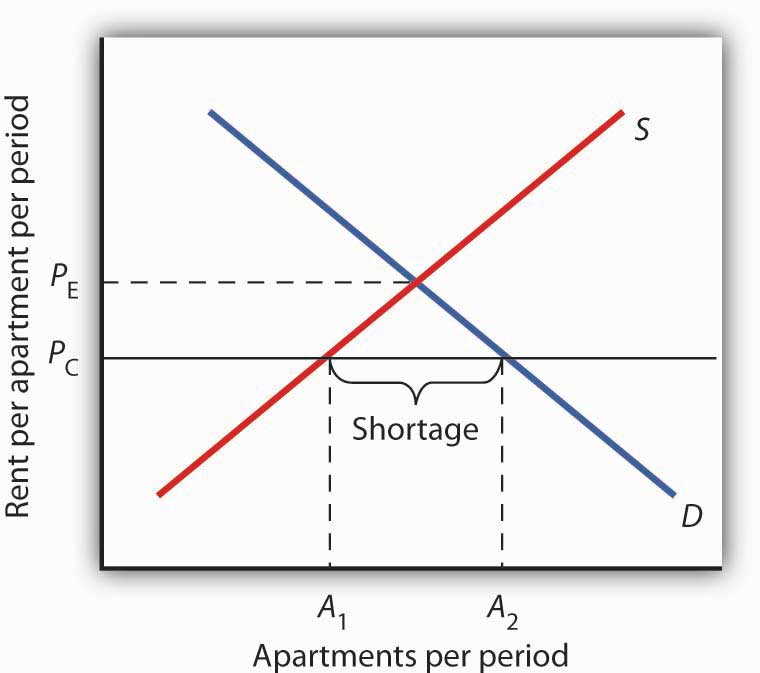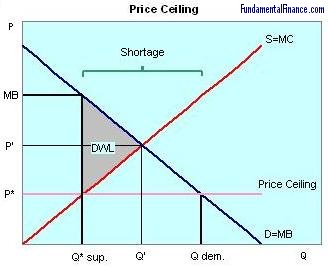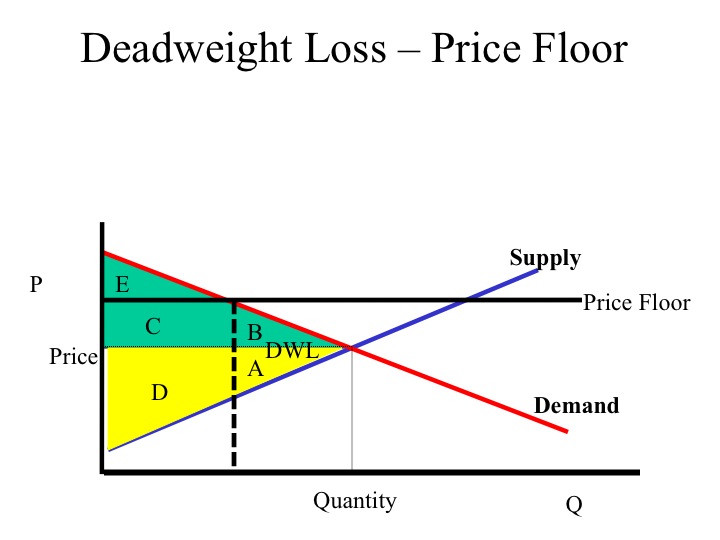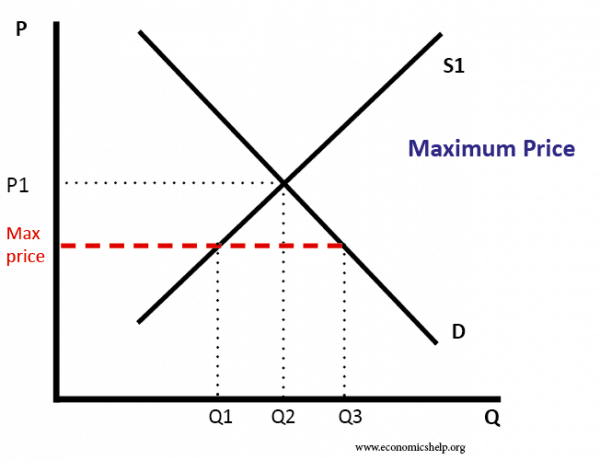Perhaps the best known example of a price floor is the minimum wage which is based on the normative view that someone working full time ought to be able to afford a basic standard of living.
Price floor example questions.
Minimum wage and price floors.
Option b is the correct option for the above mentioned question.
An example of a price ceiling would be rent control setting a maximum amount of money that a landlord can.
A price floor is the other common government policy to manipulate supply and demand opposite from a price ceiling.
What does this graph show.
Which leads to a shortage.
An example of a price floor would be minimum wage.
A minimum wage law is the most common and easily recognizable example of a price floor.
Which leads to a surplus.
An effective price floor must be set above equilibrium resulting in.
Causes of deadweight loss.
This law introduced a ceiling wage of 3 in 1925 but it was later abolished in 1968.
This is because rent control sets the maximum allowed price at which a landlord.
Price ceilings and price floors.
Want to see the step by step answer.
Taxes and perfectly elastic demand.
Taxes and perfectly inelastic demand.
Example breaking down tax incidence.
Rent control is an example of a price ceiling not price floor.
Percentage tax on hamburgers.
Quiz questions will focus on topics such as binding price ceiling lines and the term given to how.
None of the above.
A price floor means that the price of a good or service cannot go lower than the regulated floor.
The government sets a limit on how low a price can be charged for a good or service.
10 questions show answers.
This quiz worksheet combination will test your understanding of price ceilings and price floors.
Define price ceiling and price floor and give an example of each.
A price floor is the lowest legal price that can be paid in markets for goods and services labor or financial capital.
A suppose you put 350 into a bank account today.
Another example of a price ceiling involved the coulter law regarding the vfl in australia.
How price controls reallocate surplus.
For a price floor to be effective the minimum price has to be higher than the equilibrium price.
The government sets a limit on how high a price can be charged for a good or service.
Rent control is an example of a price floor.
The most common example of a price floor is the minimum wage.






